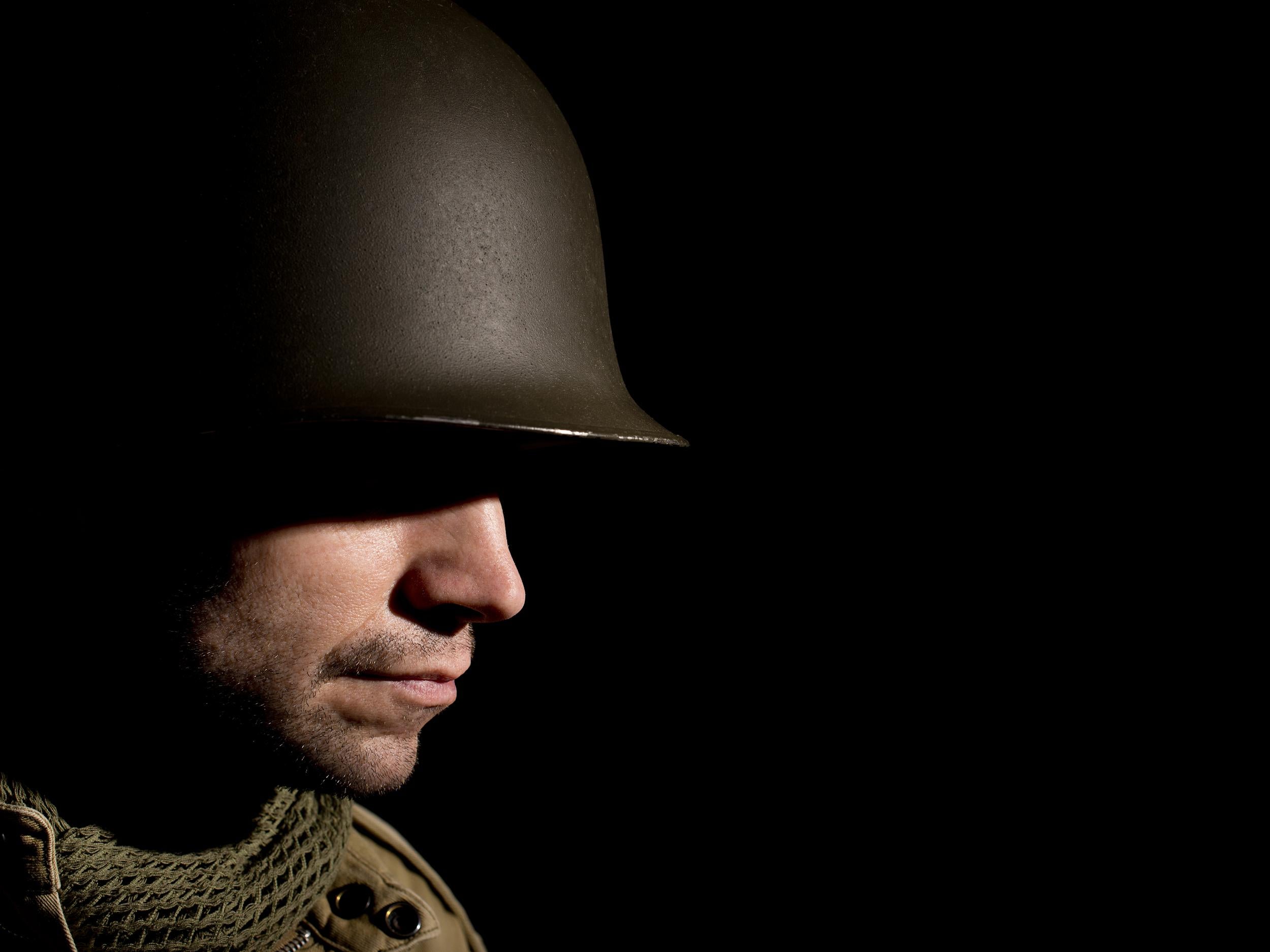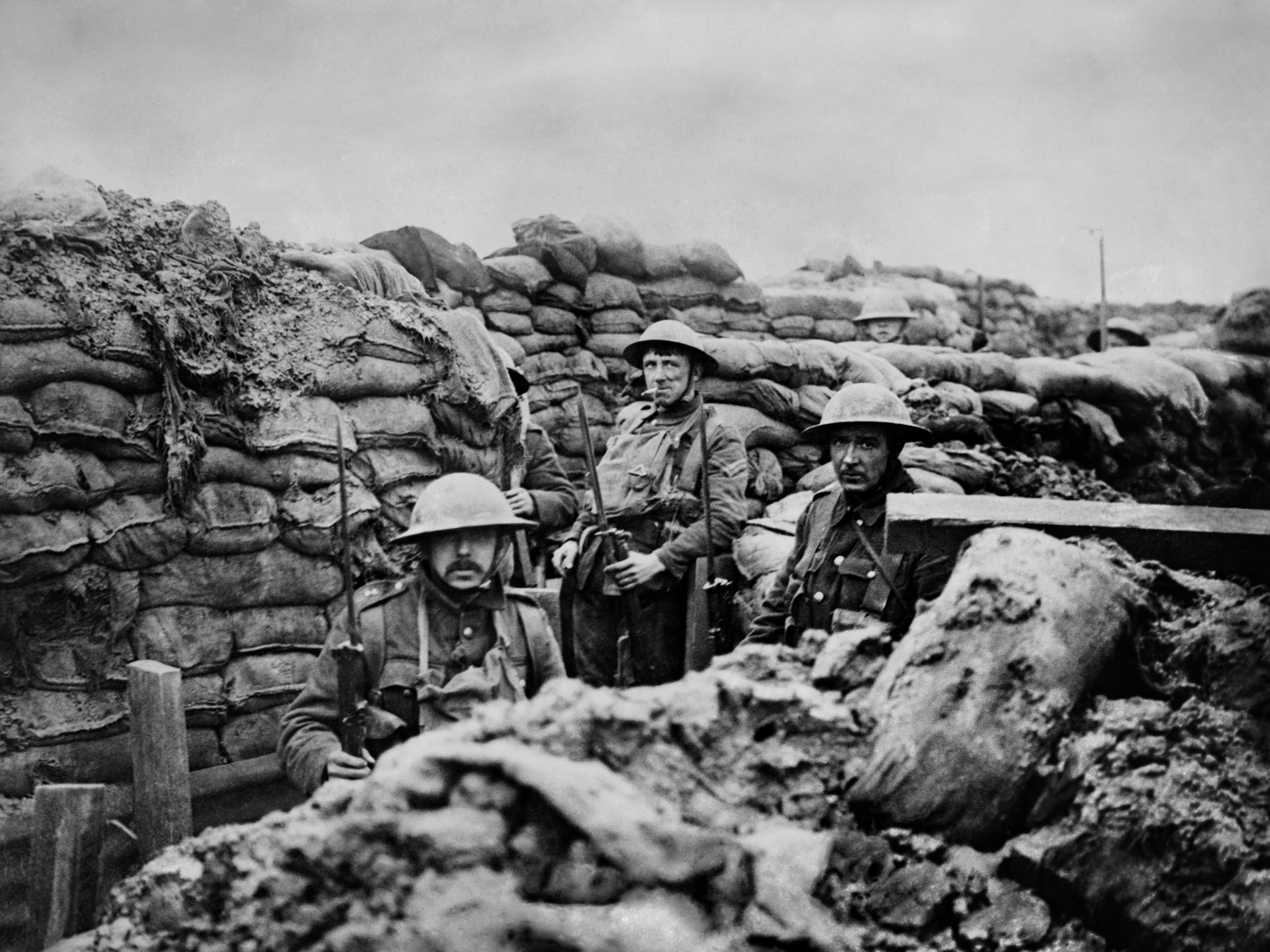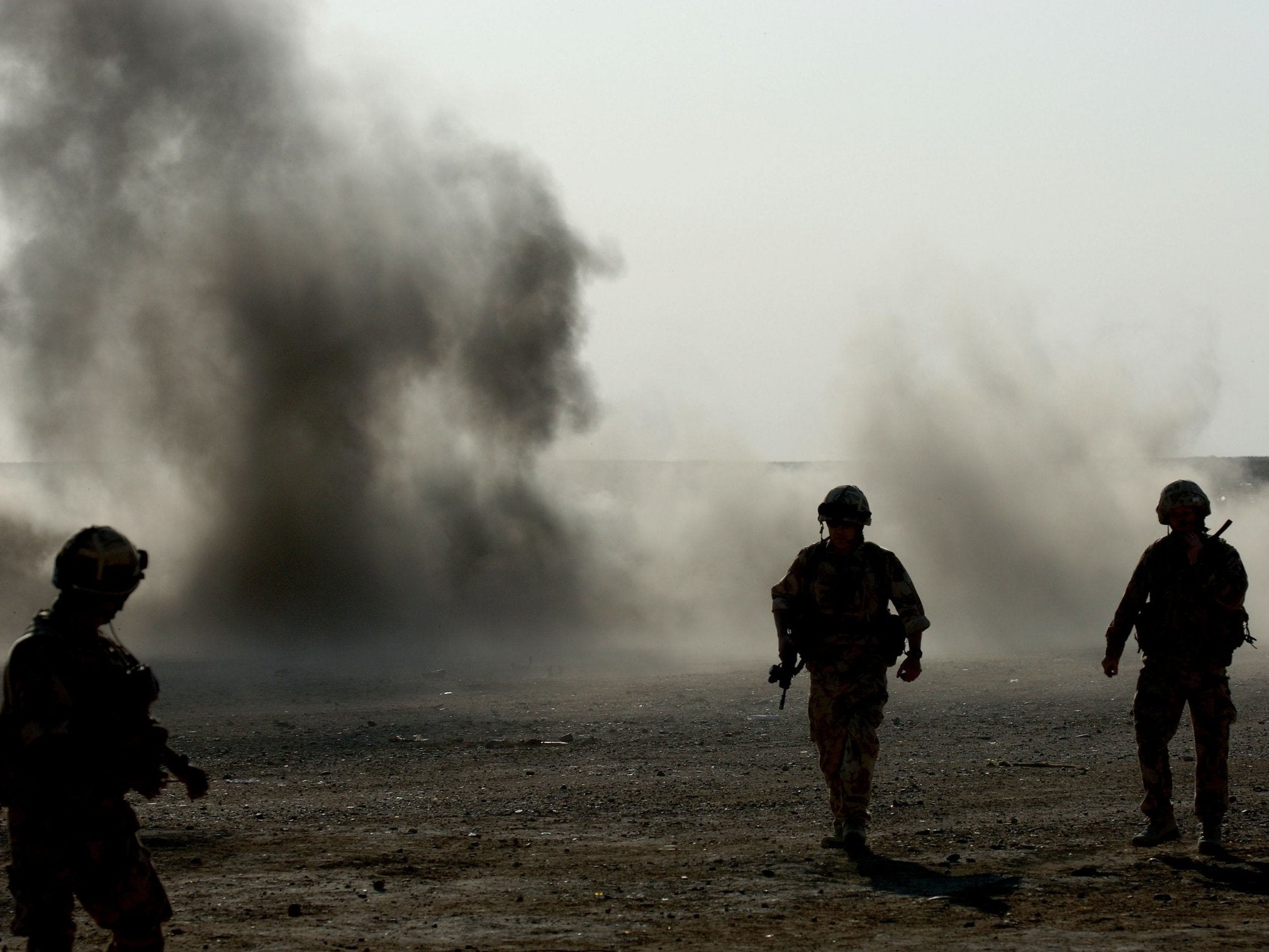The Independent's journalism is supported by our readers. When you purchase through links on our site, we may earn commission.
The overwhelming number of suicidal military members, and the neglect they face
Experts claim the amount of money the Ministry of Defence spends on mental healthcare for veterans is not enough

In 1916, a young British private in northern France wrote home to his parents explaining his decision to take his own life. A survivor of the early days of the Somme, considered one of the most brutal battles of the First World War, Robert Andrew Purvis apologised to his family before praising his commanding officers and offering the remainder of his possessions to his comrades. Purvis’s surviving suicide note remains one of the only documents of its kind from the First World War.
Our research into suicide during this war has shown that it was not uncommon – although reporting of it was rare. For the armed forces, recognition and support for these cases has been a longstanding struggle. From 1923, the Scottish charter for the honour roll of the fallen explicitly forbade the inclusion of suicide cases, which meant that reported cases from the Second World War were also omitted from the honour roll in the Scottish National War Museum at Edinburgh Castle.
At the turn of the 20th century, suicide was often regarded as a symptom of mental illness. Cases of suicide, if recorded at all, were almost always marked as being a case of “temporary insanity”. Britain stood at the forefront of treatment for conflict-related mental illness as the Craiglockhart War Hospital in Edinburgh became famous for treating shell-shocked soldiers.
The hospital evolved to advance the fledgling understanding of conflict-related psychosis and specialised in practical recovery techniques including sports, model-making, writing, photography and the “talking cure” pioneered by psychologist William Rivers.
Craiglockhart is also known for treating famous patients, including war poets Siegfried Sassoon and Wilfred Owen. Sassoon remains the only recognised war poet to have published on the controversial topic of soldier suicide.

Due to the stigma, controversy and inflammatory nature of the topic, discussions surrounding mental health and suicide in the British military were limited for much of the 20th century. Victor Gregg, a serviceman in the Second World War, recounted in an interview in 2015 how psychological aftercare for demobilised men in 1945 was non-existent, lamenting, “My brain was filled with images of suffering that were to haunt me for the next 40 years… The final gift from a grateful country was a civilian suit, a train ticket home and about £100 of back-service pay.”
Sixty-four years later, fortunately much has changed. At the turn of the 21st century, both the military and governments in the UK have come to recognise the issue of military-related suicide.
But despite the increase in mental health awareness and support campaigns for both serving soldiers and veterans over the past two decades, concerns over deaths continue. The Ministry of Defence spends £22m a year on mental healthcare for veterans, with a further £6m annually for support within the NHS. But military charities argue that this is not enough – particularly as focused statistical recording and analysis of veteran suicide cases only began in earnest after 2001.
In March 2019, Scottish warrant officer Robert McAvoy, a veteran of 20 years service, took his own life. The following month 18-year-old Highlander Alistair McLeish died by suicide at Catterick Garrison in York. These tragedies are by no means unique.
In 2018, research by a Scottish newspaper demonstrated that a former member of the forces takes their own life in Scotland every six days. This prompted the Scottish mental health minister Clare Haughey to publicly pledge closer consideration of the mental healthcare of Scottish soldiers and veterans.
Concerns over the suicides of 71 British veterans and serving personnel in 2018 led UK defence secretary, Tobias Ellwood, to tell ITV News, “I’m truly sorry. I’m sorry that they feel the armed forces, NHS and government have let them down.”

This was not an admission of responsibility for a lack of duty of care. It was a poor excuse for an apology which undercut the severity of the issue and role of the establishment within it, by insinuating that the “lack of support given” was a matter of perception. However, Ellwood also admitted: “We must improve.”
Suicide is currently the biggest killer of men under the age of 45 in the Western world – and the concerns of suicide related to service are not limited to Britain.
In the US, 6,000 veterans took their own lives in 2018, on top of the suicides of 275 active service personnel. In the American media and public eye, service and veteran suicide is perceived as a growing issue as cases of mental illness and post-traumatic stress continue to go untreated.

Military service and veteran suicide are not new issues, but there are crucial conversations to be had about the subject publicly, politically, socially and medically. Claiming there is a suicide “epidemic” would be an exaggeration as the numbers do not support that kind of term, but the issue remains pertinent and in need of public attention.
Bluntly, men and women have died, are dying and will continue to die if society does not examine the issue of military suicide. Only through open discussion, active research and recognition of service and veteran mental health-related deaths can these tragedies be prevented in the future.
The veterans’ mental health charity Combat Stress is available 24 hours a day on 0800 138 1619 for veterans and their families; 0800 323 444 for serving personnel and their families; via text on 07537 404719; or at www.combatstress.org.uk.
Simon Harold Walker is an associate researcher at the University of Strathclyde. This article originally appeared on The Conversation
Join our commenting forum
Join thought-provoking conversations, follow other Independent readers and see their replies
Comments
Bookmark popover
Removed from bookmarks